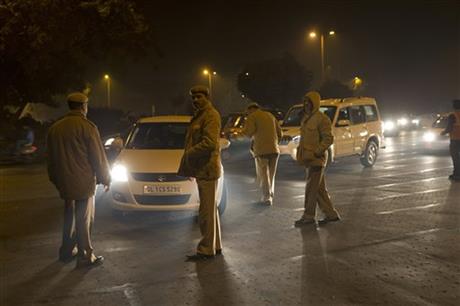Indian capital starts plan to cut pollution by limiting cars
NEW DELHI: The Indian capital on Friday kicked off a sweeping plan to reduce its record-high air pollution by limiting the numbers of cars on the streets for two weeks.
New Delhi is testing a formula where private cars will be allowed on the roads only on alternate days from Jan. 1-15, depending on whether their license plates end in an even or an odd number.
On Friday, most cars appeared to be following the rules and traffic was a tiny trickle compared to the usual rush-hour chaos. But with all schools and colleges and many offices shut, the traffic volumes were not truly indicative of the plan's success.
The city government last week announced a number of exemptions to the new rules, including top politicians, judges, police and prison officials, women and sick people and two-wheelers like motorbikes and scooters. Still, the plan to reduce the cars is the most dramatic effort the city has undertaken to combat pollution since a court order in 1998 mandated that all public transport run on CNG.
Delhi has an estimated 7.5 million registered vehicles and a large number run on highly polluting diesel. In addition to the massive numbers of vehicles on its roads, construction dust, the burning of crop waste in nearby farming areas and its proximity to the Thar desert also add to the pollution.
On Friday, the average PM2.5 levels for New Delhi were over 297, almost 5 times higher than the Indian norm of 60 and some 15 times over the WHO standard of 20.
These tiny, inhalable particles are of particular concern because with diameters no greater than 2.5 micrometers, they're small enough to penetrate deep into the lungs causing the maximum damage.
Plans to clean up the city's pollution levels included shutting down one of the oldest and least efficient power plants, a temporary ban on the sale of large diesel vehicles and a stiff toll for pollution-spewing trucks entering the Indian capital.
The Supreme Court earlier this month also banned trucks from entering the city if they're over 10 years old or are just transiting through. In addition, all taxis, including private ride-hailing services such as Uber, have to switch to compressed natural gas by March 31.






